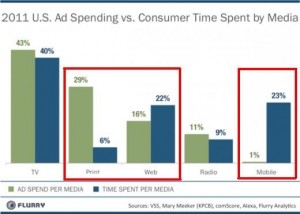Really interesting piece on treating content as a product and what that means for scaled production, if there is such a thing:
“You can’t apply industrial-age economics to content production. Content doesn’t get cheaper as the volume goes up. Unlike Ford’s automobiles, the cost of quality content goes up with the volume because content production involves skilled labour and very few economies of scale. Plenty of organisations try to work around this hard fact using various forms of automation.”
The author’s point is that it’s a gamble to “churn content without a plan”:
“While automated tools can be useful, letting general trending topics or ill-chosen metrics replace a strong editorial strategy will drive the relevance of your content down. Licensed or crowd-sourced content will rarely be tailored for your audience’s needs, the tone of voice they are most accustomed to, etc. Every mismatch drives relevance down and reduces your chances of the gamble ever paying off.”
I’d further argue that, content-wise, in the age of social sharing and a meme a minute, tone and trust are everything.
